We didn’t just go all the way to China to do exactly what we would have been doing at Nexus
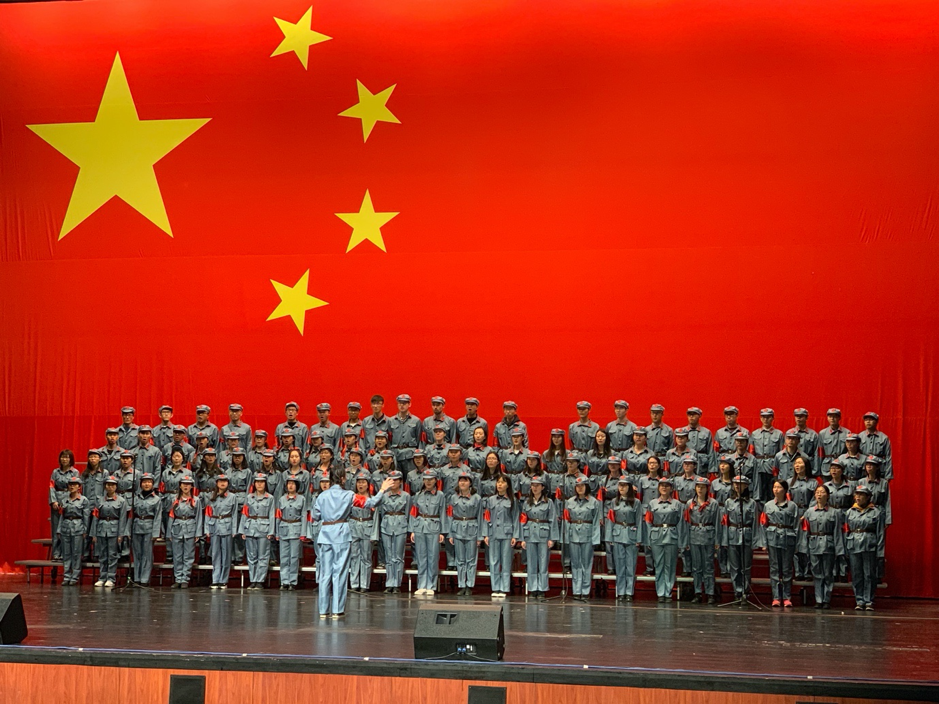
Choir, not organized by ZhongDan team but consisting of all Chinese and international students from SDC. (Photo by Luisa Gonzalez Boa)
With everything that is happening, new restrictions on social activities and partial lockdowns, it feels a bit trivial to write about a topic that seems so far away now… but oh well, my time at CBS is ending soon and I want to share my personal experience about: student organizations!
During these years, I have briefly been part of CBS Students, CBS Wine, CBS Buddy and an intro-week coordinator for the BSc IB 2016.
However, what was truly rewarding – and what taught me the most – was being the chairman of the ZhongDan team. Now… what is the ZhongDan team? It certainly doesn’t sound familiar from those society fairs every September at CBS where different organizations compete for students’ attention. Well… that’s because it isn’t.
The ZhongDan team is the one and only formal student organization at the Sino-Danish Center. But don’t worry, we weren’t that cool and exclusive.
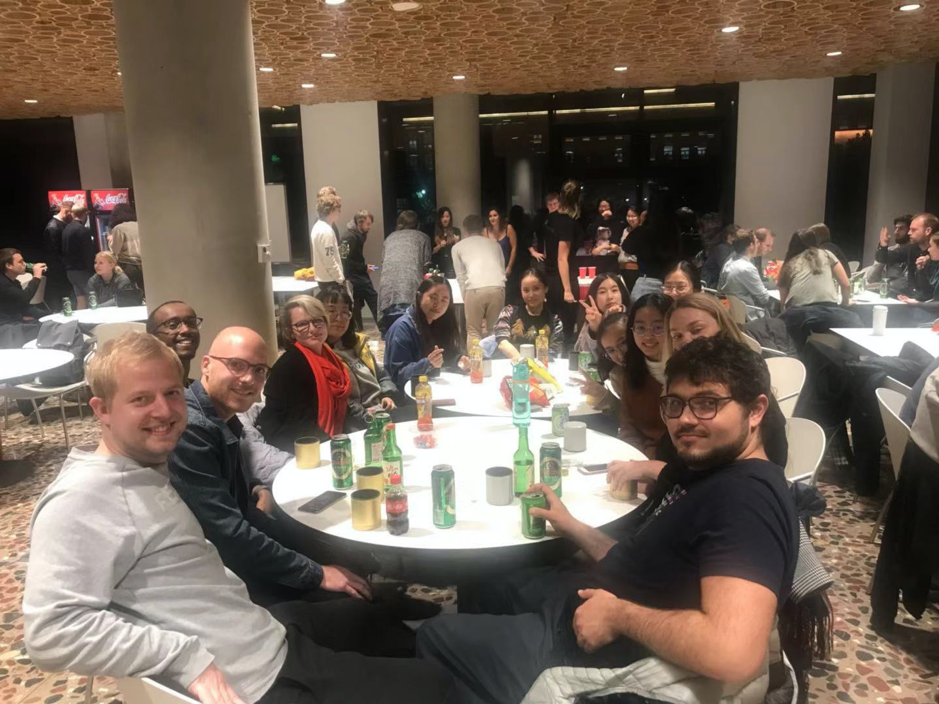
Friday bar! (Private photo)
The name is a combination of the words Zhongguo – China – and Danmai – Denmark – in Chinese, and as such, the purpose was clear: bringing foreign and Chinese students together through academic and social activities. Back when I started my master’s in September 2018, I was motivated to join the ZhongDan team, given the good experience of organizing social activities that I had gained from my bachelor’s years at CBS.
I thought with those years of experience, it would be easy peasy lemon squeezy… again I was wrong!
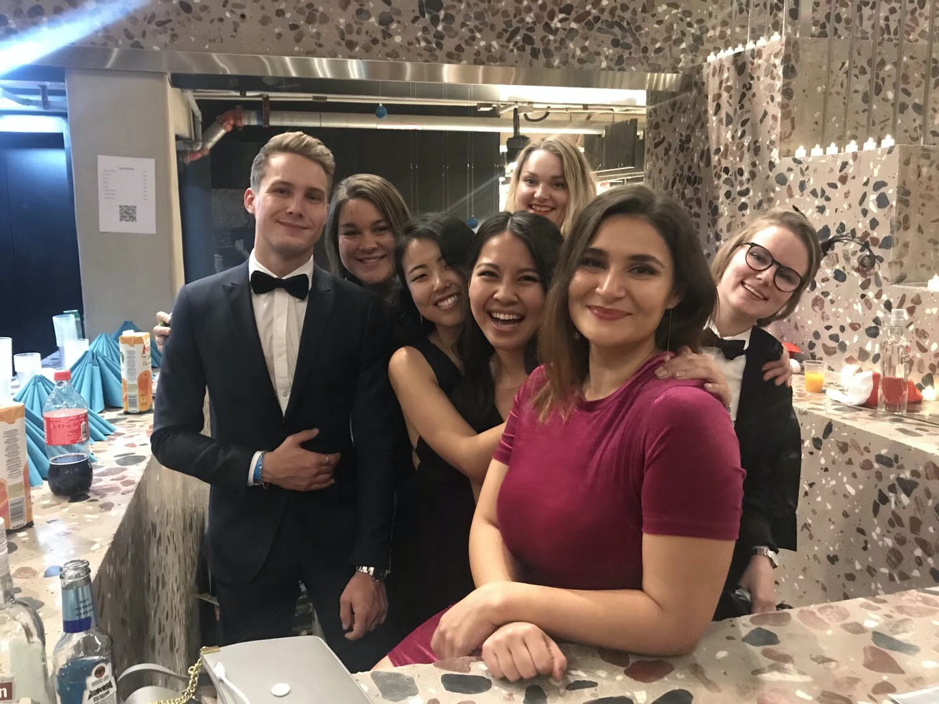
Our winter gala. (Private photo)
The beginning of the year started very well with some Friday bars, beers and games. As the weeks went by, we saw that fewer Chinese students were joining us. In any other setting, I would have thought: So, what? We are all grown-ups who can decide what to do. But our main purpose was bringing cultures together – moreover, we didn’t just go all the way to China to do exactly what we would have been doing at Nexus.
Thus, we had to step it up a little. Suddenly, organizing a Friday bar Danish style with some beers and beer-pong was not enough. We were struggling to engage our Chinese counterparts as they have a bigger academic workload than us, but that also meant that we lacked the Chinese perspective when planning activities.
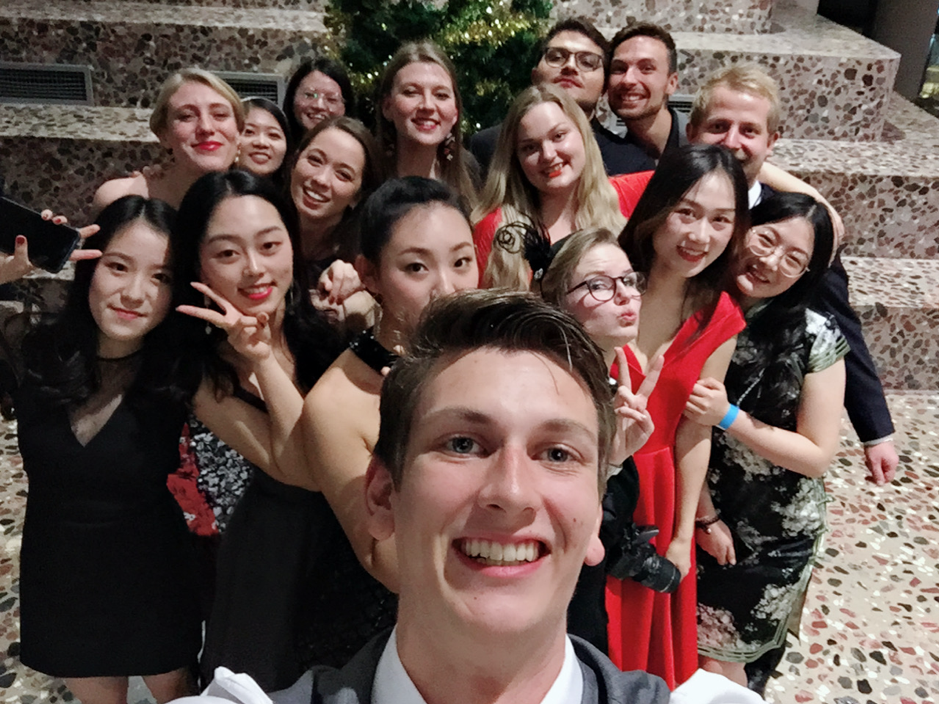
Gala party. (Private photo)
Our first – and most successful – event was our winter gala (carefully named to avoid links with Christmas). Here we decided to open for other Chinese students from UCAS to join as well.
We spent hours handcrafting decorations, making realistic budgets and ordering everything with enough time in advance – one day we had to pick up 50 L of juice at once from the post office. We organized the tables and partners to be as inclusive as possible: Chinese – foreigner was the norm.
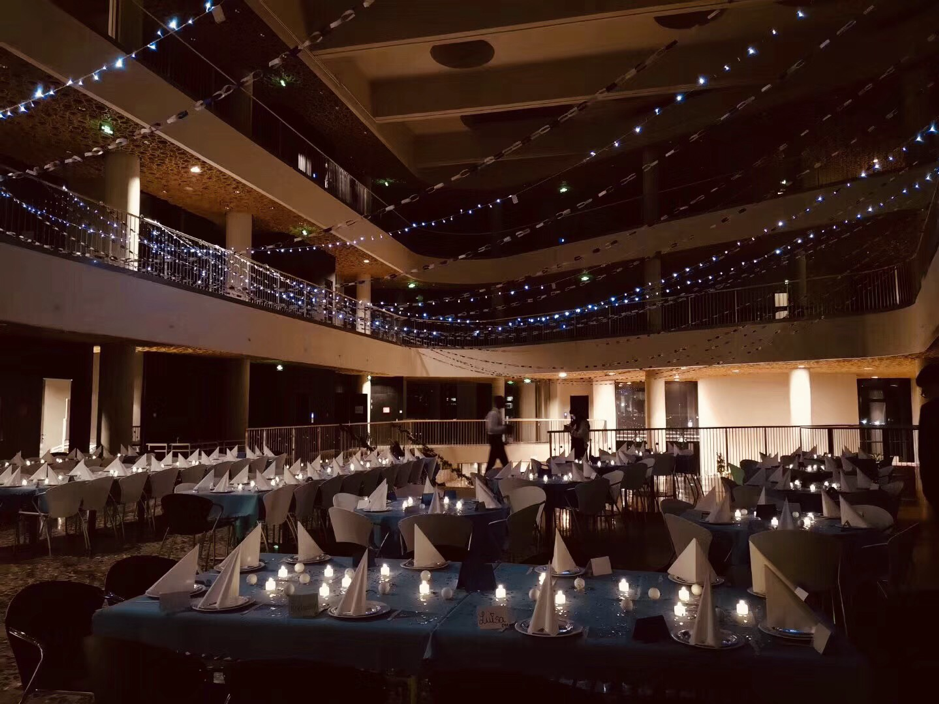
Gala party. (Photo by Luisa Gonzalez Boa)
When the time came to decide on the food, we desperately asked for help from our Chinese classmates, who created a poll. Pizza from Pizza Hut ended up as the choice of meal – so there we were, all dressed up fancy with bubbly and glittery nonalcoholic champagne from Taobao and eating pizza.
However, not all the events we attempted to plan were as successful. In fact, our summer party had to be cancelled as only five people showed any interest in joining.
Yet, after several meetings and learning from trial and error, we had some cozy Friday bars where we included more boardgames and fewer beer games. We had a quiz night, ping-pong tournament, Easter egg hunt and inspired other students to come up with different events such as Game of Thrones nights.
Moreover, we created a new coffee system at SDC and helped build the student lounge where boardgames and a projector were set up for movie nights, video game tournaments and much more.
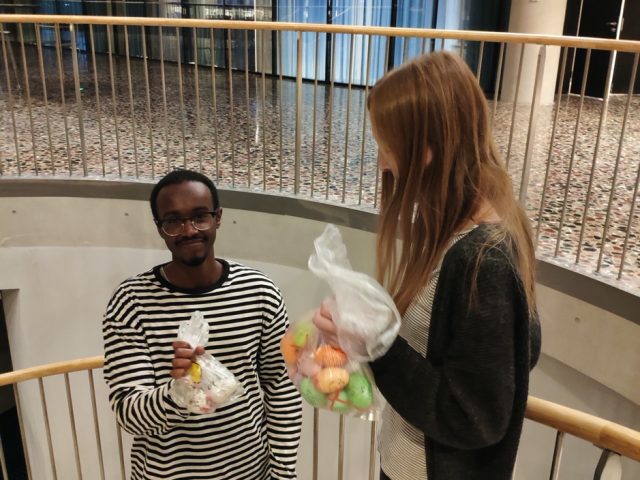
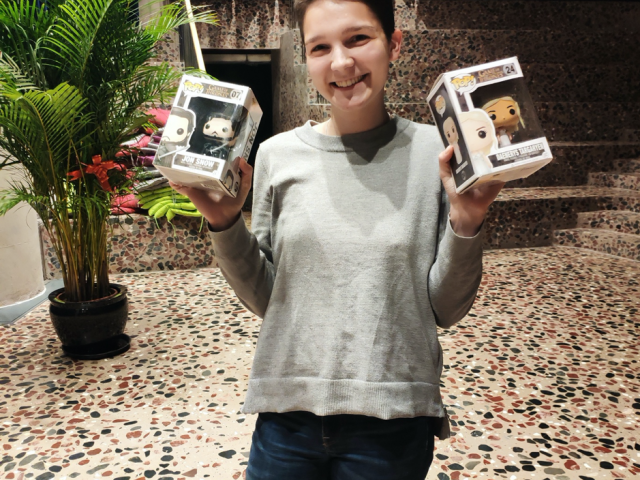
So… what’s the take-away from this experience? That being part of a multicultural team – whether academically or socially – is much more than just gathering people from different cultures. In the beginning, we thought that throwing some beers and music together would magically get our social life started, but that was not the case.
In multicultural settings, it is very important to make everyone feel included, because not all of us grew up enjoying the same social activities. Some weekends, we left the beers aside and organized a hotpot meal with some karaoke and, honestly, it was very refreshing to try new things. Some of the Danish students even joined a choir competition all in Chinese!
Now, looking back at all those moments from my apartment in Copenhagen, I can say with certainty that being part of the ZhongDan team changed me and the way I perceive multicultural environments for the better. And while I wished we had more support for the events we organized; it was all worth it.
Remember, it doesn’t matter whether you are going on exchange or taking a full master’s program abroad, in order to truly connect with the culture, you need to step out of your comfort zone – but once you do, it’s so much fun.
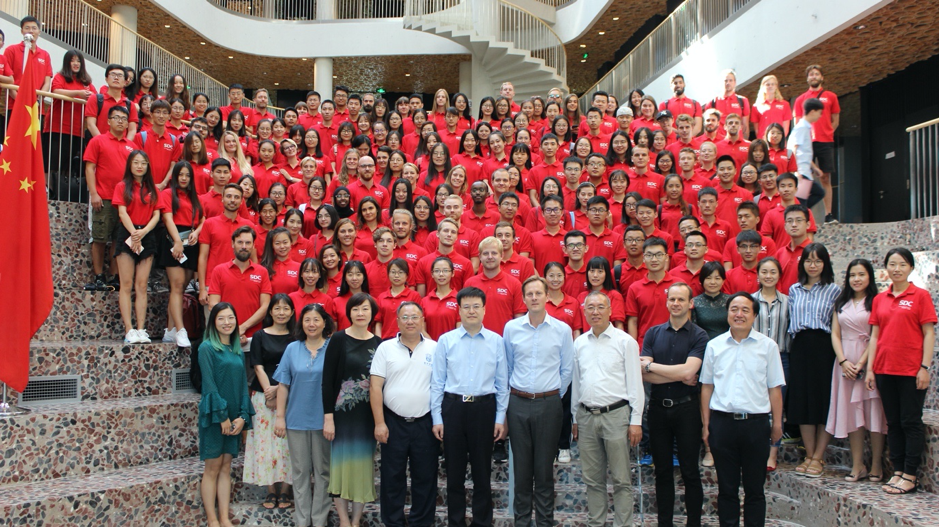

































































































































Comments